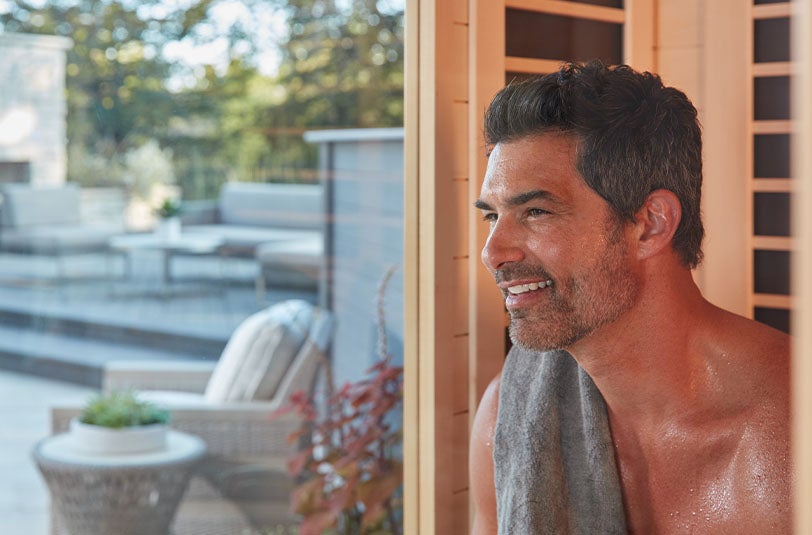Among the many definitions of the word ‘relax,’ two include: “to make less tense” and “relieve from nervous tension.” Sounds easy, right? Not necessarily. “There are people who have a hard time relaxing, and there could be a number of different reasons for this,” says Sharon Grossman, Ph.D., psychologist and burnout coach in Miami Beach, Fla., author of The 7E Solution to Burnout, and host of the podcast Decode Your Burnout.

Trouble Turning Off Thoughts - For starters, you might have trouble turning your mind off, especially if you’re ruminating about work after work. You might even think you’re too busy to relax or believe that you have to “do” something or else you’re wasting your time. If that’s the case, “you might see relaxation as little more than a throw-away activity,” Grossman says.
Amped-up Anxiety - And of course, don’t rule out anxiety in creating relaxation obstacles. “Anxiety can make it hard for a person to relax,” says Thomas J. Jameson, C-MHC, clinical director of The Ohana Luxury Drug Rehab in Kona, Hawaii.
It’s a no-brainer that taking time to relax is good for you, but have you ever wondered why? Of course, doing things that relax you give your mind and body a break from daily stress, and that’s critical. After all, left unchecked, stress can take a toll on your body, causing internal changes that often don’t show up until you experience physical symptoms.
Stress Serves Us, Sometimes - When you’re stressed, your sympathetic nervous system is activated, which triggers the fight-or-flight response. Levels of the stress hormone, cortisol, and adrenaline rise in your body. “Cortisol gets your body into the equivalent of tunnel vision,” Grossman says. “And adrenaline increases your heart rate, elevates your blood pressure, and boosts your energy so you have what you need to get into action.”
From an evolutionary standpoint, that response aided you in running from predators. Once you reached a safe spot, your parasympathetic nervous system elicited a rest-and-digest response to counter the fight-or-flight response.

Staying Stuck in Stress Doesn’t - The same response happens today, but the problem is that most people don’t get out of that fight-or-flight mode. They’re always running from predators, namely life’s stresses, which means their mind and body remain amped, constantly awaiting additional “danger.” When this happens, it can lead to a host of health problems like anxiety, depression, burn-out, digestive woes, weight gain, sleep abnormalities, muscle pain, and increased blood pressure.
Plus, if you don’t allow time for relaxation, your productivity might even be affected. “When you don’t relax, it can cause you to be less productive overall, which can increase stress,” Jameson says.
If relaxation comes naturally to you, consider yourself lucky. Yet if you’re struggling, here’s something that might surprise you: You can’t just let relaxation happen. You have to plan for it, and that starts by shifting your mindset, Grossman says.
Step 1 - Learn why relaxation is a necessary part of healthy living. “If you don’t have buy-in, you’re not going to prioritize it,” Grossman says.
Step 2 - Recognize that just because you’re not “doing” anything productive doesn’t mean it’s a waste of time. “There is no rule that says you have to produce every second of the day,” Grossman says. “Give yourself sufficient time to ‘be’ rather than just ‘do’.”
Step 3 - Know that if you’re somebody for whom relaxing is tough, it may take practice, but don’t let that be a reason to quit. “Work at it until it becomes second nature and then you can start repeating the benefits of relaxation,” Grossman says.
Step 4 – Find what works for you. Of course, while every dictionary might have similar definitions of relaxation, it means something different to everybody, and finding what works for you is essential. How do you know if you’ve found the right activity? Ask yourself how you feel after doing it. “If you feel more relaxed and at ease, then this is an activity you should practice for relaxation,” Jameson says. And it may take some time to find what works, but just know that’s part of the process.
I’m one of those individuals who has a tough time relaxing, so Jameson’s comment intrigues me. Maybe my daily exercise habit could do the trick? It always puts me in a better mood, but Grossman tells me no. “Exercise exerts energy, which is great for releasing pent-up stress, but it requires energy to do,” she says. “Relaxation is not about doing, but rather, being.”
I then start sorting through all of the activities I do in a day’s time, and I come to a stunning realization: none of them are about being. Everything I do, from cooking plant-based meals to walking my dog every day, is about doing. In other words, relaxation is far from my to-do list.

So, I do some experimenting, paying closer attention to how I feel after various activities, including being in my sauna, and I come to a surprising conclusion, given that I don’t like doing nothing: infrared sauna is my answer. When I slip into my Sunlighten portable infrared sauna and pull the top over my body, it’s as if I’m shielded from the day’s stresses, and I feel myself let go. Turns out, I’m not alone, as a study1 from Complementary Therapies in Medicine found that relaxation/stress reduction was the motivation participants most commonly gave for using a sauna.
Yet I always pair sauna with guided meditation using Calm’s app, and that’s still ‘doing’ in a sense. My solution? Tack on five or 10 minutes after my meditation to enjoy the heat on my skin, no breathwork or focused thinking required. I simply lie there with no other purpose than just to be. And for a few minutes, I relax.
Could it work for you? Fortunately, there’s no harm in trying.



